Legal cannabis a growing industry in Skagway, Alaska
'Alaskans love their weed, so there is definitely a demand for it,' says the owner of a Skagway grow-op
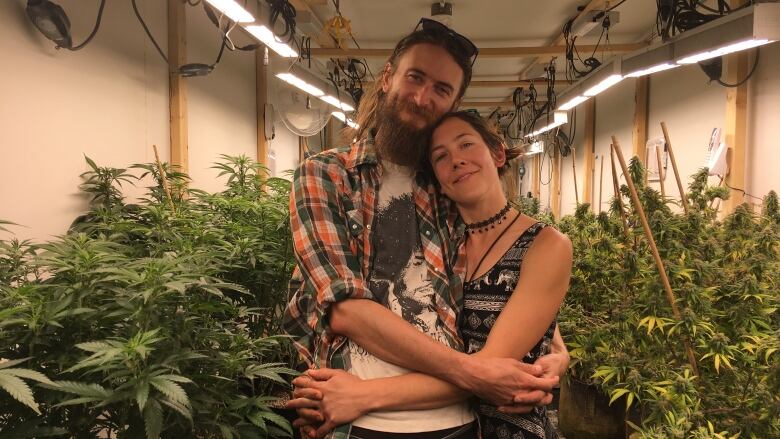
Tiffany Metz runsher hands through rows of marijuana plants she's grownwith her partner, Coop Briody, in Skagway, Alaska.
"Give them some interaction like I'm a little bird or a little mouse, out in the wilderness," said Metz, describing how she cares for the 100 plants she cultivates, in a re-purposed sea container on her property.
Briody and Metz'sgrow operation named Coyote and Toad's Garden, after their childhood nicknames has been fully operational for a year now. The business suppliesfive recreational cannabis store across Alaska, including one in Skagway.
"Alaskans love their weed, so there is definitely a demand for it and we grow it," said Metz.
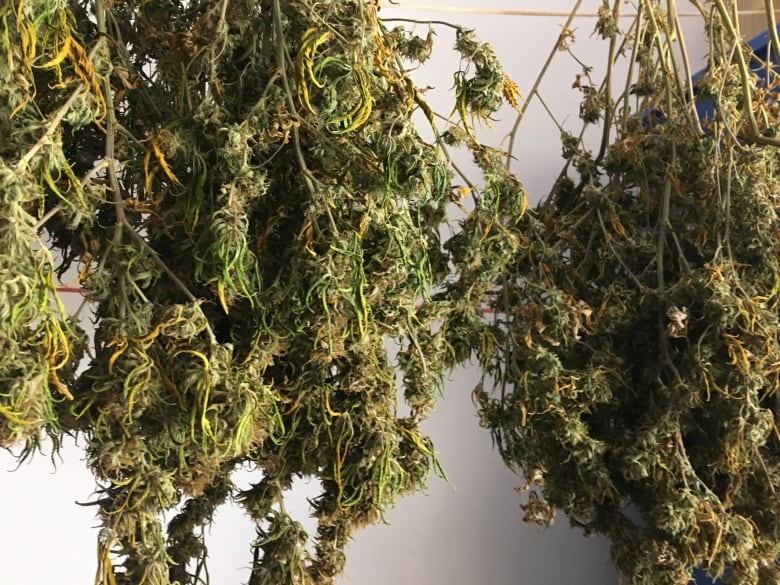
Alaskans voted in favour of legalization in 2014, but the state has had a complicated history with the substance. In a 1975 decision (Ravin v. State), the Alaska Supreme Courtprotected a person's right to privacy andallowedadults to use and keep small amounts of cannabis at home.
Now, Alaskacultivators can apply forlimited or standard licencesto grow marijuana. Limited licences arecheaper and intended for small operationsof 500-square-feet or less like Coyote and Toad's Garden.
Briody and Metzfeelthe decision to allow Alaskagrowing licences for small operationswas crucial in getting their businessoff the ground.
In Canada, only the federal government will beable to grant commercial cannabis growing licences, but the exact process is still unclear.

'Positive changes in culture'
One of the biggest changes Briody and Metzhavenoticed since legalizationis the openness of the community to talking about cannabis.
"Just positive changes in culture.People are getting to know the plant more," said Metz.
"Getting to know different strains, where the plant comes from, and what works for them because everybody is so different, so just the knowledge is being spread about these great strains."
"We couldn't have gotten this going without the community, that's for sure," saidBriody.
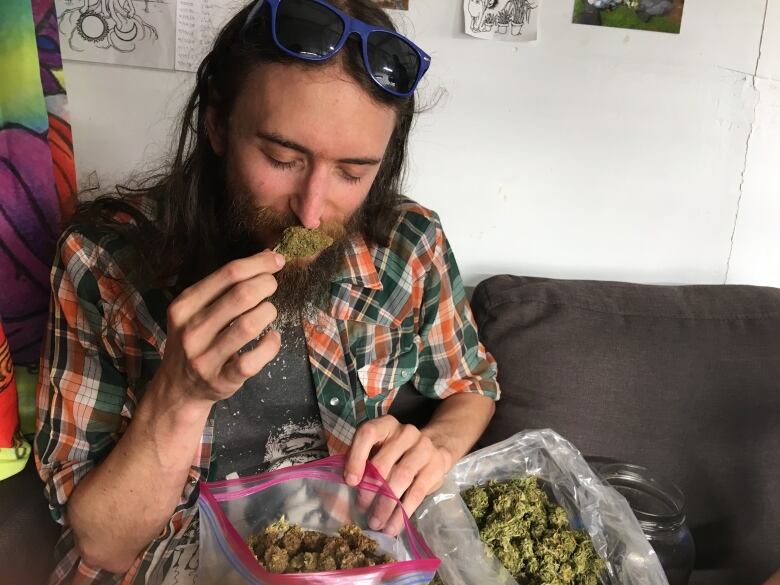
Skagway voted 75 per cent in favour of legalization. After the state enacted legislation, it was up to individual municipalities to decide whetherthey would to grant licences for things like recreational pot shops and grow-ops.
"We have a grow facility here, we have a dispensary, and it's quiet," said Scott Hahn, Skagway Borough Chief. "It's a good story I guess, if you're pro-marijuana."
There haven't been any changes in crime rates since legalization, according to Hahn, and municipal taxes collected from the local cannabis shop are going back into the town's operations and capital expenses.
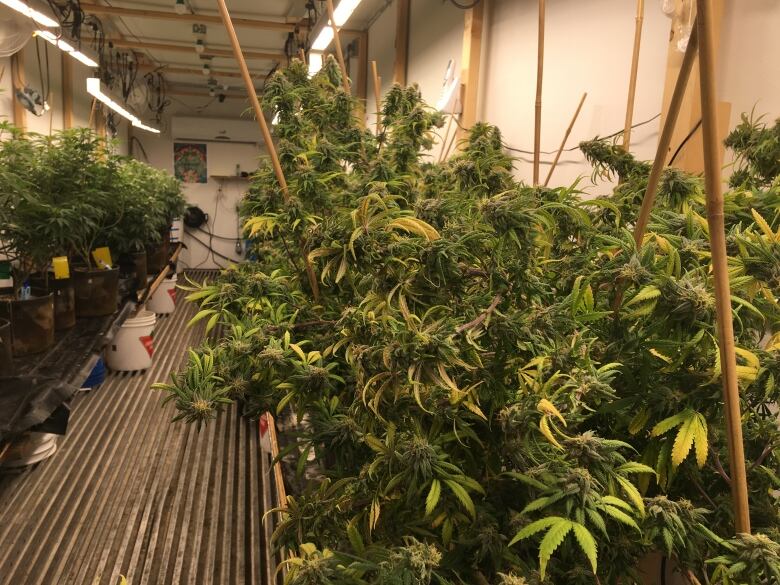
Hahn could not disclose how much the city isearning in marijuana-related taxes,because they areonly coming from one business.
In March, Alaska collected$1.1 million in statecannabis taxes. Monthly state taxes are expected to stay well into the millions, according to Alaska Department of Labour. Marijuana is taxed at $50 an ounce when being transferred or sold between cultivators and retail shops.
"This is one of the brighter spots in our economy, and probably one of the fastest growing industriesright now," said Neal Fried, a researcher with the Alaska Department of Labor. "That might change as it matures, but it's certainly not anywhere close to maturing."

Hundreds of jobs for Alaskans
As of December, there were 530 jobsin Alaska directly related tothe cannabis industry, representing about$3.9 million in payroll, according to the Alaska Department of Labor.
Fried expects there are closer to 600 jobs in the industry by now, and more expected to come. He said there are as many licences waiting for state approval as there are currently operating across Alaska.
"If that comes to fruition, we will see a continued dramatic increase in players in this industry," he said.
Marijuana is still illegal under U.S.federal law. In Alaska, the industry is regulated by state laws,and all operations and production has to be done in state, by Alaskaresidents.
The discrepancy between federal and state laws has caused problemsfor some licensed businesses.

In late March, the Steep Hill Alaska marijuana testing facility in Anchorage closed because the bank, Wells Fargo, took back aloan on the business's buildingafter learning itwasa marijuana operation.
Federal banking regulations preventU.S. banks from knowingly working with marijuana businesses,forcing all cannabis operations in Alaska to deal strictly in cash in order to operate.
According to state regulations, no one under the age of 21 can buy or possess cannabis. It'salso illegal toconsume cannabis in public spaces, or bring it across theborder.
Not promoted to tourists, yet
Skagway is expecting almost 900,000 cruise ship passengers this year.
Cannabis tourism isn'tsomething Skagwayiscurrently looking topromote,partly because there is nowhere for visitors to legally consume the product.
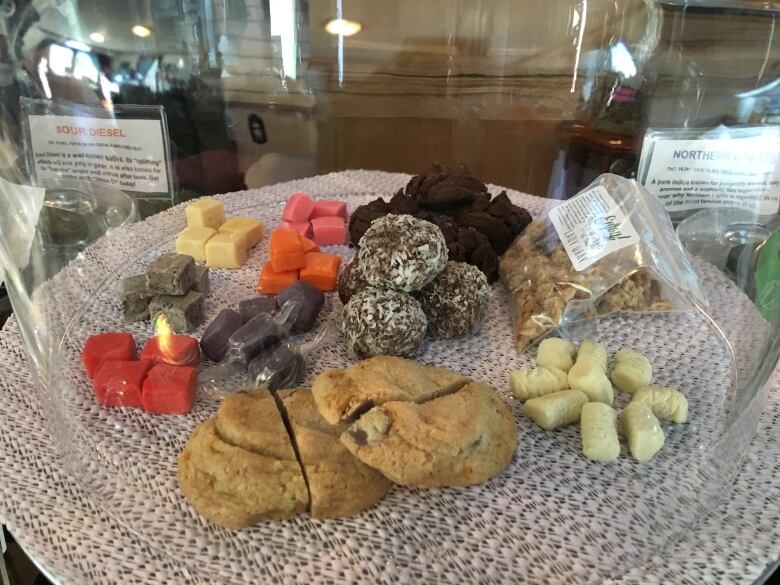
The Remedy Shoppe in Skagway was the first licensed recreational dispensary in the state, but there is nowhere for customers to legally consume products on site.
The store owners hope to eventually have a licensed backyard patio where people will be able to legally use cannabis products. The Skagway tourism office says it may reconsider promoting the industry if that happens.

Remedy Shoppe ownerTara Bass said her businesshas no specific clientele. She says she sees everyone from elderly women to middle-aged businessmen in her shop.
She says one thing legalization has clearly done isto change people's perceptions of who a typical cannabis useris.












_(720p).jpg)


 OFFICIAL HD MUSIC VIDEO.jpg)
.jpg)



























































































